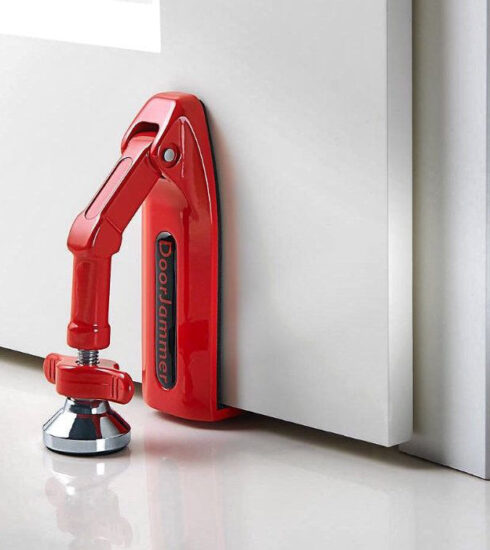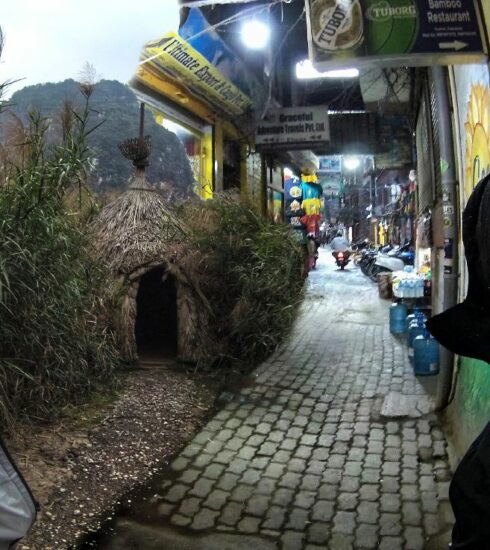Bartering in a Post-Apocalyptic World: Guide
After the world as we know it ends, fiat currency may become useless and bartering could be one of the few remaining ways to trade goods and services.
As such, it’s important to understand how bartering works so that you can stay prepared if and when the SHTF…
In a post-apocalyptic environment where conventional monetary systems have collapsed, bartering becomes the primary mode of economic transaction. Like a field agent operating in an unfamiliar AO (Area of Operations), you’ll need to master local currencies, in this case, goods and services – to gain necessary resources for survival.
Transacting Without Money
The key is to identify high-demand, low-supply items that have intrinsic value, much as you would evaluate intelligence assets in the field. Water, food, ammunition, and medical supplies are the equivalents of “hard currency,” reliably tradable and universally needed. Similarly, information can become a form of currency; knowing the location of a clean water source or safe passage through hostile territory can be invaluable. Your ability to assess the value of these assets is akin to threat analysis, requiring a deep understanding of both the tangible and intangible factors at play.
Tradecraft in bartering lies in the negotiation – here, operational security and psychological assessment are pivotal. Much like establishing a cover for status or employing deception in covert operations, you’ll need to gauge the motivations and honesty of the other party. Asymmetry of information is a strategic advantage: gather intelligence on what the other party truly needs and what they believe you need. This can tip the scales in your favor during the negotiation process.
The barter should feel mutually beneficial but aim to secure terms that bolster your long-term survivability and mission objectives. Remember, a poorly executed barter is like a blown cover: it not only risks the immediate operation but can compromise long-term strategic goals. Exercise caution, employ situational awareness, and as in any operation, always have an exit strategy.
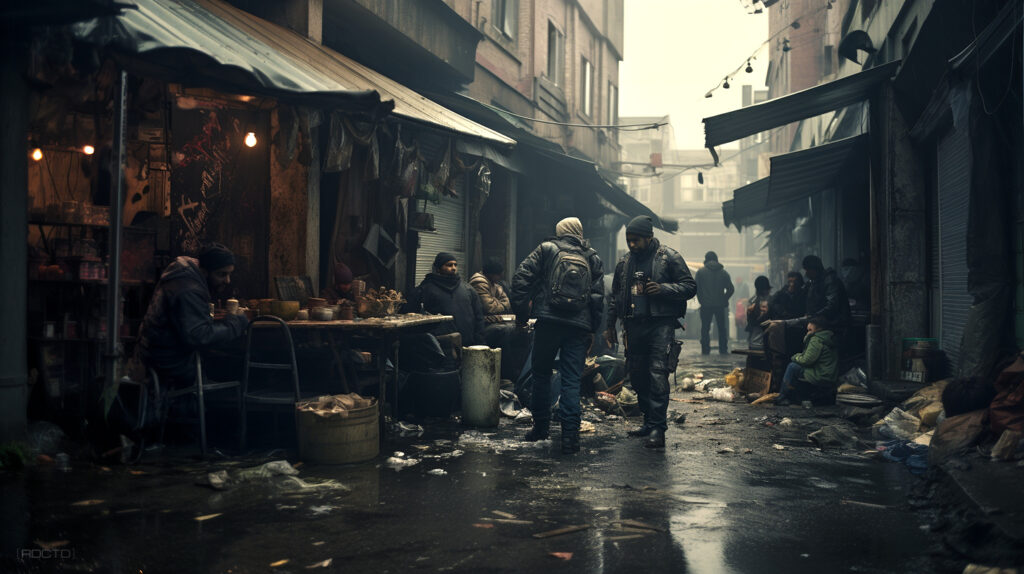
How to Barter
Bartering is a great way to get what you need without using currency, particularly in a post-apocalyptic world. Bartering can help you survive and build relationships with other survivors, so it’s important to learn how to do it efficiently. Here is a guide on how to barter with people after the end of the world.
Gather Information
First learn about the people you plan to barter with, understand their needs and wants, and figure out how you can provide them with something they value or need.
Establish Trust
Establishing trust is essential when bartering as many times goods are exchanged without money changing hands upfront. Show that you are reliable and trustworthy by being transparent about what you have to offer and also setting clear expectations for both parties involved in the trade.
Make an Initial Offer
Start by offering something small but of high value in order to establish goodwill between both parties. Be open minded during negotiations; try not to be too rigid and make sure that both parties feel like they’re getting a good deal from the exchange.
Set up Agreements
If possible, make sure that all agreements are written down in order to ensure that all parties involved know exactly what was agreed upon during the negotiation process. This way there is less chance of misunderstandings or disagreements occurring later on in your trade relationship.
Keep Records
Maintain a record of past trades so that they may serve as references for future exchanges between both parties involved in the transaction, which will strengthen your relationship even further.
By following these steps, you should be able to effectively barter with people after the end of the world, helping you get what you need while also developing valuable trading relationships with those around you.
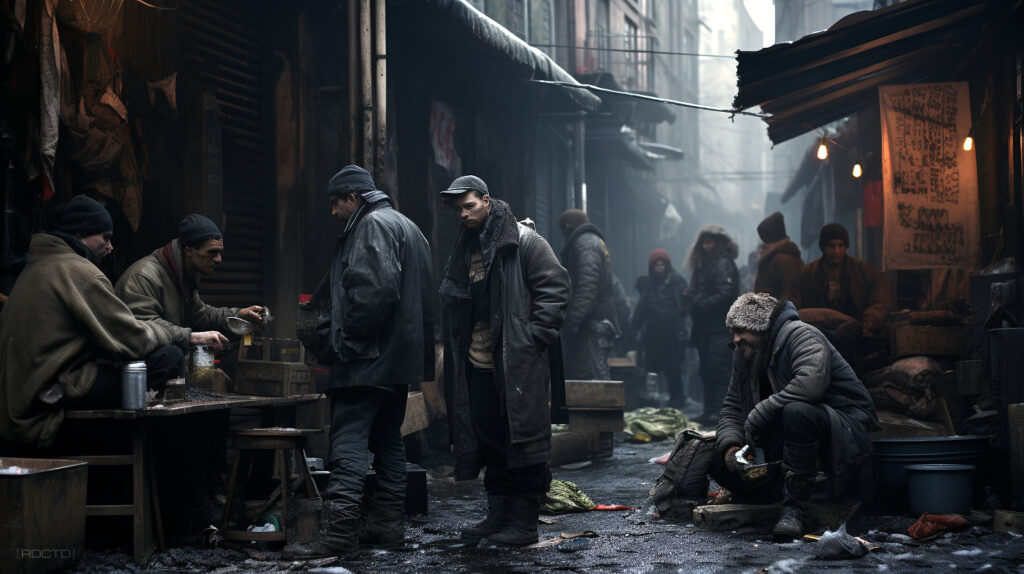
Dangers and Risks
A major danger when bartering after the end of the world is not being able to trust the other person. It’s important to develop relationships with reliable and honest people so that there is accountability for both parties in their interactions.
Watch out for scams and robberies and avoid scamming and robbing as well. While easy and quick “money” may sound good living through an apocalypse, you don’t want future problems with people you cheated or assaulted – or earn a reputation where no one will work with you.
Another risk is offering too much or too little value for a particular item or service. Remember to always offer fair value for their products or services while trying to negotiate a better deal for yourself as well.
Most Valuable Bartering Items
In post-apocalyptic worlds, items such as food, water, and fuel are likely to be the most valuable and widely available resources. Food is essential for survival and can be used in bartering to acquire other goods or services. Water is even more precious than food in a world without clean tap water and can often be found in areas where humans have not yet degraded the environment. Fuel is also an extremely valuable resource that can be used to power vehicles, generators, cookers etc.
Gold and Silver
Gold can be a valuable asset when bartering in a post-apocalyptic world. Gold is universally accepted, recognizable and scarce, making it an ideal currency for barter trade in most cases. However, gold is also heavy and hard to store, so managing large amounts of gold may be difficult or impractical.
In addition, the value of gold can fluctuate greatly depending on its availability and the market conditions of a particular area. As such, it’s important to understand what kind of value gold has in the place where you’re trading before attempting to use it as a form of currency.
Silver has also become a popular currency in post-apocalyptic worlds due to its scarcity, malleability and ability to conduct electricity. In addition, it is easier to trade than gold or diamonds due to its wide distribution and abundance across the world. Silver coins are often used as a form of currency in bartering, as they are easy to identify and weigh.
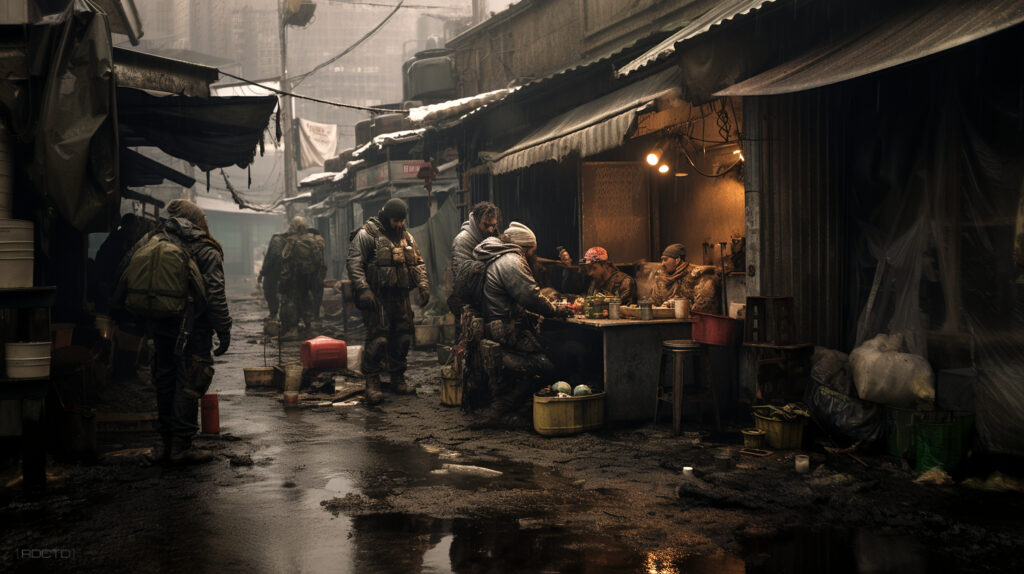
Canned Foods
These will probably sky rocket in value over time after the end of the world. Canned foods can be a great bartering tool in post-apocalyptic worlds, as they are not perishable and can last for a long time. Canned goods are also generally easy to transport and store, making them an attractive option for trading. Furthermore, canned goods often provide a good variety of nutrition that may not be available from local food sources.
In a scenario where traditional supply chains have disintegrated, canned foods emerge as an invaluable asset for bartering. The longevity and durability of canned items parallel a reliable source with a long operational shelf life, making them highly sought-after.
Unlike perishables or items requiring specific storage conditions, canned foods are stable, easy to transport, and offer a wide range of nutrients and calories – attributes that elevate their “market value” in a post-apocalyptic economy. Additionally, their sealed nature makes tampering more evident. Holding a stockpile of canned foods effectively increases your negotiating leverage, allowing for more favorable terms in a barter.
In essence, possessing canned foods in this context is comparable to having high-quality tradecraft tools: they provide the flexibility and adaptability needed to navigate unpredictable and resource-scarce environments, enhancing your overall mission sustainability.
Bitcoin and Monero
If the world somehow still has working electricity and internet (or eventually get it back, then Bitcoin and Monero are two types of digital currencies that can be used for bartering money in a post-apocalyptic worlds.
Bitcoin is the world’s most popular cryptocurrency, and it has a decentralized network that makes transactions secure and fast. It also has a fixed supply, providing users with assurance that its value won’t rapidly decrease due to over-inflation.
Monero is an open-source cryptocurrency that offers even greater privacy features than Bitcoin. It uses private addresses and ring signatures to hide transaction details from prying eyes, making it well suited for barter trade in dangerous or hostile environments.
Although it’s unlikely we’ll have power grids functioning and therefore no internet, once (if) we eventually rebuild and do get power back on, Bitcoin and or Monero will probably the world’s medium of exchange.
[INTEL: Incidentally Barterable Go-Bag Items, How to Negotiate Like a Spy]




